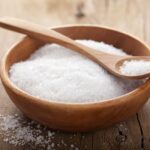|
Getting your Trinity Audio player ready...
|
Constipation is defined as difficulty passing stools or having infrequent bowel movements. It occurs when feces stay in the colon (large intestine) longer than expected. That is, more than 24 to 72 hours after eating or when the person strains to evacuate. Constipation can be caused by lifestyle factors, medical conditions, or the use of certain medications. Some people choose to use laxatives to relieve or resolve constipation. A laxative is a substance that helps you have a bowel movement, relieving and preventing constipation. There are five basic types of laxatives.
- Stimulants – cause the intestines to contract and expel feces.
- Osmotics – move water into the intestine from nearby tissues to soften stool and increase the frequency of bowel movements.
- Softeners – They soften dry and hard stools with water that they extract from the intestine, facilitating their expulsion.
- Lubricants – oily laxatives that coat the surface of the stool to retain liquid and make it easier to pass.
- Fecal mass formers (bulk-forming) – contain fiber that absorbs water from the intestines and produces larger stools, allowing the intestine to contract and expel them.
With the exception of laxatives bulk-forming, the other types, mainly stimulants and lubricants, can:
- Create dependency. Bowel movement or motility will occur only if ingested. In the long term, the intestine may lose the ability to move on its own and decrease its overall function.
- Interfere with the absorption of calcium and vitamins A, D, E and K.
- Irritate the intestine, creating muscle contractions.
- Cause severe cramps, diarrhea, belching, nausea and electrolyte imbalance (particularly sodium, potassium, chloride and bicarbonate).
- Prevent the absorption of water, very necessary for functions in other parts of the body.
- Turn urine brownish red, if one of its ingredients is senna (common in stimulant laxatives).
- Cause (although much less common): irregular heartbeat, weakness or fatigue, mental confusion, muscle aches, or skin rashes (rash).
The least recommended for frequent use are stimulant laxatives and lubricants. Some brand names of stimulant laxatives are: Ex-Lax, Senexon, Fletcher's Castoria, Senokot, Black Eraser, Feen-A Mint, Correctol, Dulcolax, Carter's Pills, Black Draught and Fletcher's Castoria. Mineral oil is the most commonly used lubricating laxative, followed by castor oil. It is not recommended to use stimulant laxatives or lubricants for more than a week without medical evaluation.
With bulk-forming laxatives or bulk-forming you need to drink at least 8 ounces of water or 100% juice. This will help prevent intestinal obstruction. A second glass of water or 100% juice may help prevent additional side effects. Be sure to follow the dosage and frequency instructions on the label. During the day, it is important to stay well hydrated. Some brand names of bulk-forming laxatives are: Metamucil (psyllium), FiberCon (polycarbofil) and Citrucel (methylcellulose).










